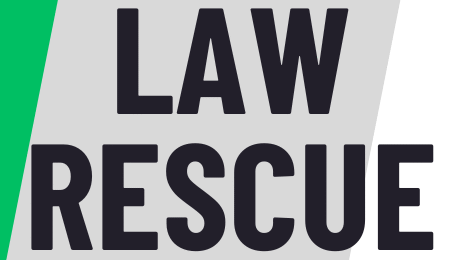Are you going through a divorce and worried about what’s best for your family? Divorce can be tough, especially when deciding who gets to care for your kids.
Did you know that nearly half of marriages in the U.S. end in divorce? Figuring out who gets custody of the kids can be really hard.
Choosing the right lawyer is key. You might be thinking, should you get a Child Custody Lawyer or a Family Law Attorney? This article will help you understand the differences so you can choose wisely.
Understanding the Legal Landscape of Child Custody
Child custody disputes are emotionally tough and legally complex. When parents split up or get divorced, deciding who gets custody can be a big fight.
The Emotional and Legal Complexities of Custody Disputes
Custody disputes are not just about law; they’re also very emotional. Courts look at many things, like who can give the best home, lifestyle, and care for the child.
In New York, both parents have the same rights to custody unless a court says otherwise. This is true in many places, showing how key it is to know the local laws.
Why Specialized Legal Representation Matters
A Custody Dispute Lawyer is very helpful in these complex cases. They make sure your rights as a parent are looked after. They help the court understand your situation fully.
| Factors Considered in Custody Decisions | Description |
|---|---|
| Parent’s Ability to Care | Courts check if each parent can meet the child’s needs for care, education, and happiness. |
| Lifestyle and Stability | The safety and stability of each home are very important. |
| Child’s Best Interests | The child’s happiness and well-being are the main things courts think about. |
Overview of U.S. Child Custody Laws
Laws on child custody vary by state, but there are some common rules. Knowing these can help you understand the legal process better.
It’s very important to talk to a lawyer who knows about child custody laws in your state. They can give you advice and help you.
What is a Child Custody Lawyer?
If you’re dealing with a child custody dispute, understanding what a child custody lawyer does is key. A child custody lawyer focuses on cases about child custody. They offer expert advice and help their clients.
These lawyers know a lot about custody disputes. They understand the emotional and legal sides of these cases. Their knowledge helps parents get the best for their kids.
Specialized Focus and Expertise
A child custody lawyer mainly deals with custody cases. They know a lot about the laws and rules of these disputes. This knowledge helps them give good advice and defend their clients.
Types of Cases Child Custody Lawyers Handle
Child custody lawyers work on many types of cases. These include:
- Complex custody disputes with many parties or misconduct claims.
- Issues across state or international lines, where laws differ.
- Cases with special needs children, needing specific care plans.
Certification and Specialization Requirements
Certification rules vary by state. But, many child custody lawyers get special certifications or join family law groups. These show they keep up with family law changes.
Choosing a lawyer with a lot of experience in child custody law is smart. It means your case gets the care and expertise it needs.
What is a Family Law Attorney?
Dealing with family law matters? Knowing what a Family Law Attorney does is key. They handle cases like divorce, child custody, child support, and property division.
Broader Scope of Practice
A Family Law Attorney does more than just custody cases. They can tackle many family law issues. This makes them a great choice for many families.
Areas of Family Law Beyond Child Custody
Family Law Attorneys work on more than just custody. They also handle:
- Divorce proceedings
- Property division
- Child support
- Adoption
- Prenuptial agreements
General vs. Specialized Approach
Family Law Attorneys can take a general or specialized approach. It depends on what you need. Some focus on specific areas, while others handle a wide range of cases.
| Aspect | General Approach | Specialized Approach |
|---|---|---|
| Scope of Practice | Handles a wide range of family law cases | Focuses on specific areas like child custody or divorce |
| Expertise | General knowledge across family law | In-depth knowledge in specialized areas |
Key Differences Between Child Custody Lawyers and Family Law Attorneys
Understanding the difference between a child custody lawyer and a family law attorney is key. Your choice of lawyer can greatly affect your case’s outcome.
Specialization vs. Versatility
Child custody lawyers focus on custody cases, bringing deep expertise to this complex area. Family law attorneys, on the other hand, handle a wide range of cases. This includes divorce, property division, and spousal support, along with child custody.
Experience with Custody-Specific Laws
Child custody lawyers are well-versed in laws specific to custody. These laws can change a lot from state to state. Their knowledge is very helpful in understanding your case’s details.
Network of Child-Focused Resources
Child custody lawyers have a network of experts like psychologists and social workers. These resources are key in building a strong case for you.
Court Experience and Litigation Skills
Both types of lawyers have court experience. But child custody lawyers often have more experience in custody cases. Good litigation skills are essential for protecting your rights.
In summary, while both lawyers can help in custody cases, knowing their differences is important. Think about your specific needs and case complexity when choosing a lawyer.
When to Hire a Child Custody Lawyer
Understanding child custody laws can be tough. Knowing when to get a child custody lawyer is key to protecting your rights. Child custody cases are emotionally and legally complex. The right lawyer can greatly impact the outcome.
Complex Custody Disputes
When custody disputes are fiercely contested or involve many parties, a lawyer is crucial. They know the laws and can help you fight for what’s best for your child.
Interstate or International Custody Issues
Custody cases that span states or countries are even more complicated. A lawyer with experience in these areas can guide you through. They ensure your child’s custody is handled correctly under the law.
Cases Involving Special Needs Children
Children with special needs need special care in custody cases. A lawyer can help make sure the custody arrangement meets their unique needs.
High-Conflict Situations and Allegations
In very tense custody cases or those with abuse or neglect claims, a lawyer is vital. They protect your rights and your child’s interests.
| Situation | Why a Child Custody Lawyer is Needed |
|---|---|
| Complex Custody Disputes | Expertise in navigating complex legal issues |
| Interstate or International Custody Issues | Knowledge of relevant laws across jurisdictions |
| Cases Involving Special Needs Children | Tailored custody arrangements for special needs |
| High-Conflict Situations and Allegations | Legal representation to protect rights and interests |
When a Family Law Attorney May Be the Better Choice
Choosing between a Child Custody Lawyer and a Family Law Attorney depends on your case’s complexity and your budget. A Child Custody Lawyer focuses on custody disputes. A Family Law Attorney offers a wider range of services, which might be helpful in some cases.
Divorce Cases with Multiple Legal Issues
In divorce cases with many legal issues, like property division and child custody, a Family Law Attorney is a good choice. They can manage all parts of the divorce, giving you a full service approach.
Amicable Custody Arrangements
For cases where both sides agree, a Family Law Attorney can help. They can guide negotiations to find a custody agreement that both parties can agree on, without needing a lot of court battles.

Budget Considerations
Cost is also important. Family Law Attorneys usually charge less than Child Custody Lawyers. This makes them a more affordable choice for simpler cases or those with fewer legal issues.
Simpler Custody Situations
In cases with less conflict, a Family Law Attorney can handle it efficiently. They save you time and money. They offer the legal advice you need without the high costs of specialized custody lawyers.
Choosing between a Child Custody Lawyer and a Family Law Attorney depends on your case’s needs. Think about your case’s complexity, your budget, and the conflict level. This helps you make a choice that’s best for your family.
- Consider the complexity of your case
- Evaluate your budget for legal services
- Assess the level of conflict in your custody dispute
By carefully looking at these factors, you can pick the right lawyer for your family law case.
State-Specific Considerations for Child Custody Cases
Child custody laws change a lot from state to state. This makes it very important to have local knowledge. Knowing your state’s laws well is key to getting a good result in a custody case.
Variations in Custody Laws Across States
Every state has its own rules for child custody. These rules cover how custody is decided, what factors are considered, and how to change custody orders. For example, some states prefer joint custody, while others might choose sole custody in some cases.
The Importance of Local Legal Knowledge
A lawyer who knows your state’s child custody laws can be a huge help. They know the local court rules, what judges like, and how to move through the system. This helps protect your rights and interests.
Finding State-Specific Expertise
To find the right lawyer, look for those who focus on child custody in your state. Ask friends, family, or other lawyers for recommendations. You can also search online for “Child Custody Legal Services” or “Custody Arrangement Lawyer” in your area. Make sure the lawyer has experience with cases like yours.
The Child Custody Legal Process Explained
The child custody legal process is complex, with many important stages. Each step can greatly affect your case’s outcome. Knowing what to expect is crucial.
Initial Filing and Temporary Orders
The journey starts with filing a custody petition. This action begins the legal process. The court might then issue temporary orders for custody arrangements. These orders help keep your children stable until a final decision is made.
Discovery and Evidence Gathering
In the discovery phase, both sides share information and gather evidence. This includes financial records and witness statements. A child custody lawyer can guide you through this, making sure your evidence is strong.
Mediation and Negotiation
Before going to trial, courts often suggest child custody mediation. This is a way to find a custody agreement without going to court. It’s less stressful and can save money, giving you more control over the outcome.
Trial Preparation and Court Proceedings
If mediation fails, your case goes to trial. Your legal team will prepare you for what to expect in court. A skilled child custody lawyer will present your case, using evidence and arguments to support your custody request.
Understanding the child custody legal process can make you feel more ready and confident. With the right legal help, you can strive for the best for your children.
Child Custody Lawyer Costs and Fee Structures
The cost of hiring a child custody lawyer can vary a lot. This depends on the lawyer’s experience and how complex the case is. It’s important to understand these costs to plan your legal journey and make sure you can afford the help you need.
Typical Fee Arrangements
Child custody lawyers have different fee structures to meet their clients’ needs. These include:
- Hourly rates: Clients pay for the time the lawyer works on their case.
- Flat fees: A fixed amount is charged for specific services, like drafting a custody agreement.
- Retainer fees: Clients pay an upfront fee to secure the lawyer’s services, which is used as work is done.
Factors That Affect Legal Costs
Several factors can change the cost of hiring a child custody lawyer. These include:
- The lawyer’s experience and reputation
- The complexity of the custody dispute
- The location of the lawyer’s practice
- The need for expert witnesses or additional legal services

Comparing Costs: Specialists vs. General Practitioners
Specialists in child custody law might charge more, but their expertise is crucial in complex cases. General practitioners might be cheaper but may not have the same level of specialized knowledge.
Budgeting for Your Legal Representation
To manage your legal expenses well, talk openly with your lawyer about fees. Plan your budget accordingly. Think about your financial situation and the costs of your case to prepare for the legal process.
How to Find and Evaluate Potential Attorneys
Finding the right attorney for your child custody case is crucial. It’s important to know how to find and assess potential lawyers. This involves several key steps to identify a skilled and experienced lawyer.
Research Methods and Resources
Start by using online resources like legal directories and review websites. You can also ask friends, family, or professionals for referrals. They might know a good family law attorney.
Reading Reviews and Testimonials
After getting a list of potential attorneys, read their reviews and testimonials. Look at their reputation and what past clients say. Especially, check their experience with Child Custody Laws.
The Initial Consultation Process
The first meeting with an attorney is key. Prepare questions about their approach and experience with Family Law Attorney services. This will help you decide if they’re right for your case.
Assessing Experience and Track Record
When looking at potential attorneys, their experience and success in child custody cases matter a lot. Find a lawyer with a strong track record in complex custody disputes. They should also know the local Child Custody Laws well.
By following these steps, you can find a Family Law Attorney who will handle your case well.
Questions to Ask When Interviewing Potential Attorneys
To choose the right lawyer, you need to ask the right questions. This is your chance to see if a Child Custody Lawyer or Custody Dispute Lawyer fits your case.
Experience and Case History Questions
First, ask about their experience with cases like yours. Find out their success rate and how they handle tough custody disputes. For example, you could ask, “Can you share an example of a challenging custody case you won and how you achieved that outcome?”
Strategy and Approach Questions
It’s important to understand their strategy. Ask, “How will you approach my case?” or “What steps will you take to ensure the best possible outcome?” This will give you insight into their approach and how they can help you.
Communication and Availability Questions
Good communication is vital for a successful relationship with your lawyer. Ask about their availability for calls, emails, and updates on your case. You might ask, “How will you communicate with me throughout the legal process?”
Fee Structure and Billing Practices
Lastly, understand their fee structure. Ask about their billing practices, including how they charge and any extra costs. Clear up any cost doubts to avoid surprises later.
By asking these questions, you can make a better choice when picking a lawyer. This ensures you get the right legal help for your situation.
Alternative Dispute Resolution in Child Custody Cases
Child custody issues don’t always need a courtroom fight. Alternative Dispute Resolution (ADR) offers a less stressful way to agree on custody.
Mediation vs. Litigation
Mediation uses a neutral third-party to help parents agree on custody. It’s less confrontational and can save money. It’s great for parents who want to keep things friendly for their kids.
- Mediation encourages collaborative decision-making.
- It can be less expensive than going to court.
- Mediation allows for more creative and flexible solutions.
Collaborative Law Approaches
Collaborative law is another ADR method. Both sides and their lawyers work together to settle without court. It focuses on respect and cooperation for a fair agreement.
Key aspects of collaborative law include:
- A commitment to transparency and honesty.
- A focus on finding solutions that work for both parties.
- The use of experts, such as child specialists, to inform decisions.
When ADR Makes Sense vs. When You Need a Litigator
While ADR is helpful in many cases, sometimes court is needed. For example, if there’s a history of abuse or a big power gap, court might be safer.
Consider ADR if:
- You and the other parent can communicate effectively.
- You’re both willing to compromise.
- You want to avoid the stress and cost of a court battle.
In conclusion, ADR methods like mediation and collaborative law can solve child custody disputes. But, it’s important to think about your situation and decide if ADR or litigation is best.
Working Effectively With Your Child Custody Legal Team
Building a strong relationship with your child custody attorney is crucial. It helps you navigate the complex world of family law. To succeed, you need to know what makes a good partnership.
Preparing Documentation and Evidence
Gathering and organizing important documents and evidence is key. This includes:
- Financial records
- Communication logs with the other parent
- Witness statements
- Records of your child’s living arrangements and care
Having all your documents ready helps your attorney build a strong case for you.
Setting Realistic Expectations
It’s important to understand the legal process and what might happen. Your attorney can explain the complexities of child custody law. They can also tell you what you can reasonably expect.
Being an Active Participant in Your Case
Stay updated on your case’s progress and be ready to make decisions. Being actively involved shows you’re committed to the best outcome for your child.
Communication Best Practices
Good communication is essential for a successful relationship with your attorney. Make sure to:
- Respond quickly to your attorney’s requests for information
- Ask questions if you’re unsure about anything
- Inform your attorney of any changes or developments
By following these tips and keeping communication open, you can work well with your child custody legal team. This will help you get the best results for your child.
Custody Modifications and Ongoing Legal Support
Life changes, and so do custody arrangements. Circumstances that led to your initial custody order might change over time.
Need to adjust the custody order? A Custody Modification Lawyer can help a lot.
Significant Changes in Circumstances
Courts need a big change to change custody. This could be a new job, moving, or changes in your child’s needs.
When Modifications Require Specialized Knowledge
Some custody changes need more than basic family law knowledge. Cases involving different countries need a Family Law Attorney with special skills.
Building a Long-term Relationship with Your Attorney
Having a lawyer who knows your case is helpful. A long-term relationship with your Family Law Attorney means they understand your family’s needs better.
With a lawyer who knows you, handling future custody changes will be easier.
Conclusion: Making the Right Choice for Your Child’s Future
Choosing the right lawyer is key in child custody cases. Knowing the difference between a Child Custody Lawyer and a Family Law Attorney helps. This way, you can make a choice that’s good for your child’s future.
A Child Custody Lawyer knows a lot about Child Custody Laws. They help you through the legal system to get the best for your child. Look for a lawyer with experience in cases like yours and who knows the local laws well.
The lawyer you pick can really change your case’s outcome. A lawyer who knows Child Custody Laws well and has a good track record can protect your child’s interests.
To make the best choice for your child, think carefully and make an informed decision. By picking the right Child Custody Lawyer, you can go through the legal process with confidence. This will help secure a better future for your child.
Frequently Asked Questions
What is the main difference between a child custody lawyer and a family law attorney?
A child custody attorney specializes in situations concerning the determination of child custody arrangements. A family law attorney addresses many familial matters, including divorce and asset distribution.
When is it advisable to engage a child custody attorney?
A child custody attorney may be necessary for intricate instances. This encompasses conflicts that cross state boundaries or cases pertaining to minors with particular requirements.
Is a family law attorney capable of managing a child custody case?
A family law attorney is capable of managing child custody matters. However, they may lack the extensive experience of a child custody attorney.
How do I select between a child custody attorney and a family law lawyer?
Consider the intricacy of your case and your financial constraints. In intricate disagreements, a child custody attorney may be more advantageous.
What advantages are associated with employing a child custody attorney possessing local legal expertise?
An attorney possessing local expertise is well-versed in state legislation and judicial protocols. This assists in traversing the legal procedure.
What is the fee for engaging a child custody attorney?
The expense fluctuates according to geographical location, expertise, and the intricacy of the case. Fees may be charged on an hourly, fixed, or retainer basis.
What is the legal process for child custody?
The procedure commences with the submission of filings and provisional orders. It include the collection of evidence, mediation, and trial preparation.
Is it permissible to utilize alternative dispute resolution (ADR) in my child custody proceedings?
Indeed, alternative dispute resolution methods such as mediation can be beneficial in less acrimonious situations. It is a method for resolving conflicts without litigation.
What steps should I take to prepare for collaboration with a child custody attorney?
To collaborate effectively with an attorney, compile your records and proof. Establish attainable objectives and actively engage in your case.
Is it possible to amend an established child custody arrangement?
Indeed, a custody arrangement can be modified if circumstances evolve. An attorney can assist you during this procedure.
What inquiries should I make while interviewing prospective child custody attorneys?
Inquire about their experience, case history, and strategic approach. Additionally, ascertain their communication preferences and availability.

